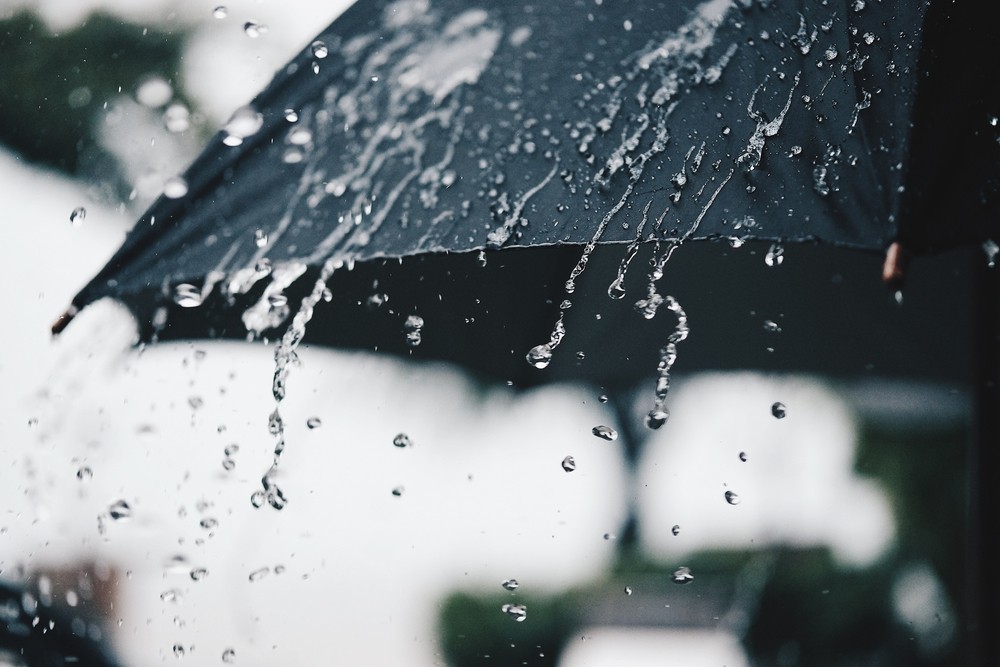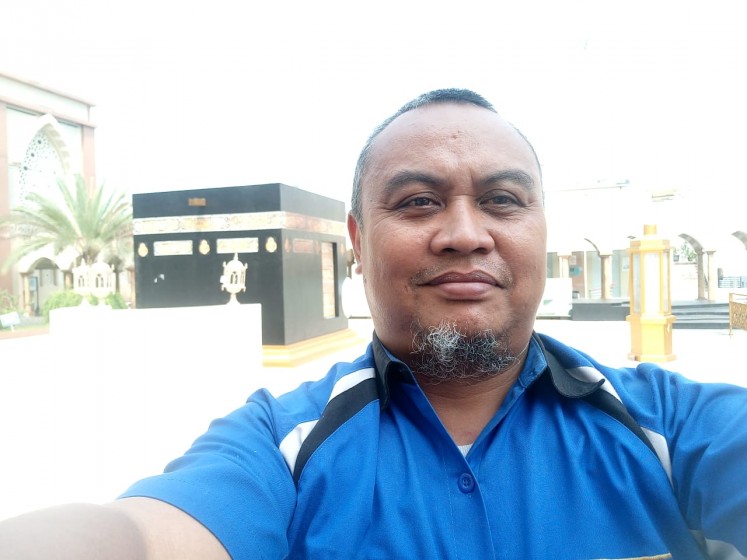Popular Reads
Top Results
Can't find what you're looking for?
View all search resultsPopular Reads
Top Results
Can't find what you're looking for?
View all search resultsHow Indonesians control nature: Meet the rain shamans
Want year-long gigs, decent pay, loyal clients and absolutely no guarantee of the work results? Be a rain shaman in Indonesia.
Change text size
Gift Premium Articles
to Anyone
S
eptember marks the start of the change of the seasons, from dry to wet, in various regions in Indonesia. Those aiming to hold outdoor events elsewhere would go the safer routes and opt for indoor alternatives, but not the average Indonesian, thanks to the existence of pawang hujan (rain shamans), whose job is, as per local beliefs, to typically delay (some say divert) the rain until after the outdoor event is over.
Raditya Adi Nugraha, a freelance project manager who often works with local event organizers, is accustomed to working with pawang hujan. “I almost always work with pawang hujan in every outdoor event,” he told The Jakarta Post on Monday.
According to Raditya, the shaman doesn’t even need to be present at the venue. “We normally just pay them in advance. There are usually no special requests from the pawang hujan, except for us to watch our behavior and words during the event. It can be done over the telephone,” Raditya said.
Eko Budi Sumantri, who prefers to be addressed as Mas Eko, has been a pawang hujan since 2009. Prior to being granted the ability by his grandfather, Mas Eko had asked him whether this newfound skill would include magical elements. “I had to ask because if magic is involved, it would be hard for me to explain it to my clients,” he said.
To start his rain-diverting ritual, Mas Eko recites a Quranic chant a thousand times and recites prayers near a water source of the location or at a mosque nearby. “When I was doing my job in Turkey, the mosque was 10 kilometers from the venue, so it’s not a requirement. I can just do my job at the venue, as long as there’s a water source. So far, there have always been water sources at the locations.”
Reciting the chant 1,000 times normally takes around three hours. To keep count of the chants, Mas Eko equips himself with a metal hand counter. On days with heavy rain, he will chant more than a thousand times and pray to keep the rain away so the event he’s “guarding” will run uninterrupted.
Meteorology, Climatology and Geophysics Agency (BMKG) public relations head Hary Tirto Djatmiko said delaying rainfall was a part of weather modification. “This weather modification is possible during a transitional season, as there has to be a cloud formation. This is from a scientific point of view,” he said. “As for pawang hujan, it’s our culture. There’s not yet any scientific study regarding the [shamans’] methods,” he added.
Eko Budi Sumantri, who prefers to be addressed as "Mas" Eko, has been a rain shaman since 2009. (Eko Budi Sumantri/File)Read also: ‘Blessing rain’ hits closing ceremony
Forty-year-old Nur Komariah, known to her clients as Ibu Ria, has been a pawang hujan for over two decades. Similar to Mas Eko, Ibu Ria was clear about not using black magic to “control” the weather. “Many other pawang hujan use props like tree branches, frankincense, chili. We don’t; we only pray. Many people use black magic, but not us. We stay pure; we pray and we do Quranic chanting.”
Although her methods are similar to Mas Eko’s, Ibu Ria is not always a solo player. “I come from a family of pawang hujan. All 10 of us, including my father, my mother, my siblings and myself, have been doing this for a long time. For big events, sometimes we work together.”
In hiring pawang hujan, Raditya said it involved a high level of trust and understanding on the clients’ side. “Hiring pawang hujan is not very expensive, and as clients, we understand that this is something that they only “help” with. So we don’t cut their pay if it eventually rains in the middle of the event.”
The fee these rain shamans receive per event may not seem much, but having loyal clients combined with the weather uncertainties of a tropical country throughout the year means the profession is indeed lucrative. Ibu Ria, who charges Rp 2.5 million (US$168) per event, said business is always good. “I get hired all year long, as nowadays there’s no telling whether it’s the rainy season or the dry season. My clients are usually malls, as they often have these outdoor events,” Ibu Ria said, adding that working as rain shamans was her family’s only source of income.
Forty-year-old Nur Komariah, known to her clients as Ibu Ria, has been a pawang hujan for over two decades. (Courtesy of Nur Komariah/File)Mas Eko, on the other hand, who asked a more modest fee of Rp 1.5 million per event, claims to receive much more when he’s on an out-of-country engagement. “I get paid lots of money,” he said, without specifying the number. His international clientele posed new challenges, Mas Eko said, adding: “I really want to try helping out in international events like MotoGP. Also, I really want to try to handle snow.”
Since his ability was passed down from the previous generation in his family, Mas Eko is also grooming his children to be pawang hujan. "My eldest recently helped out in a school event and it worked. However, it's the youngest who is showing real interest in this profession." Meanwhile, Ibu Ria said the ability can be learned, and it is not always hereditary.
Having a steady and decent income from loyal clients who thoroughly understand that the job offers no guarantee of the result is a luxury, and therefore both Mas Eko and Ibu Ria felt the need to give back to the community.
“I attended the 411 rally in Monas [National Monument] and helped out in terms of delaying the rain. I was worried because there were a lot of people involved — it would be messy if it was raining. I wasn’t paid by anyone to do that, it was purely my own initiative,” he said, adding that he did not do the same thing at the 212 rally because he was in India at the time.
Ibu Ria also helped her community using her powers. “There was this time that the road near my house was being repaired. I helped out so the process was smooth. I also personally pray for natural disaster victims, regardless of their religion or ethnicity. It’s my duty as a human being.”













